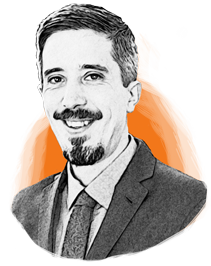June 20, 2019 PAO-M06-19-NI-010
Diffuse large B cell lymphoma (DLBCL) is the most common type of non-Hodgkin lymphoma, with more than 18,000 people diagnosed with the disease annually in the United States alone. Initial treatments are often successful, but 30–40% of patients experience relapse. Treatment options for patients who have not had success with existing drugs are limited.
The U.S. Food and Drug Administration has, however, approved a new alternative from Genentech: the antibody–drug conjugate (ADC) Polivy (polatuzumab vedotin-piiq).
The new drug is approved for adult patients with DLBCL that has progressed or returned after at least two prior therapies when used in combination with the chemotherapy bendamustine and a rituximab product (a combination known as “BR”).
The antibody in Polivy binds to the CD79b protein found only on B cells and then releases the bendamustine into the cells. In a study of 80 patients with relapsed or refractory DLBCL who were randomized to receive Polivy with BR or BR alone, 40% of those that received Polivy plus BR had a complete response, compared with 18% of those receiving BR alone. Of the patients receiving Polivy plus BR that had a partial or complete response, 64% had a duration of response (DOR, time of remission) of at least six months, and 48% had a DOR of at least 12 months.
Polivy was granted Breakthrough Therapy, Priority Review and Orphan Drug designation designations by the FDA. It also received accelerated approval, and additional clinical trials are required to verify and describe Polivy’s clinical benefit.

David is Scientific Editor in Chief of the Pharma’s Almanac content enterprise, responsible for directing and generating industry, scientific and research-based content, including client-owned strategic content, in addition to serving as Scientific Research Director for That's Nice. Before joining That’s Nice, David served as a scientific editor for the multidisciplinary scientific journal Annals of the New York Academy of Sciences. He received a B.A. in Biology from New York University in 1999 and a Ph.D. in Genetics and Development from Columbia University in 2008.